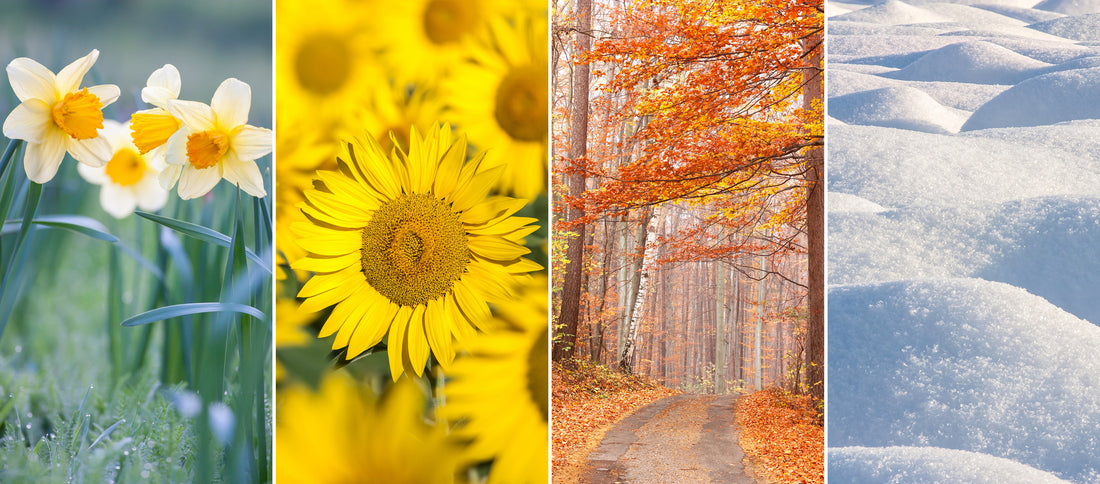
The Science of Seasonal Hair Changes: How UV Exposure, Humidity, and Temperature Shifts Impact Hair and Scalp
UV Exposure: The Sun's Hidden Impact
We often think of UV exposure in terms of skin damage, but it also significantly affects hair. The sun's ultraviolet (UV) rays can weaken the hair shaft, leading to dryness, brittleness, and color fading.

A study published in the Journal of Cosmetic Science found that prolonged UV exposure can degrade the protein structure of hair, particularly keratin, which is essential for maintaining hair strength and elasticity. This degradation not only makes hair more prone to breakage but also strips away the natural oils that keep it moisturized.
Protection Tips:
Humidity: The Frizz Factor
Humidity is another major factor that affects hair texture and manageability. High humidity levels can cause hair to absorb excess moisture from the air, leading to swelling of the hair shaft. This swelling disrupts the cuticle—the outermost layer of the hair—causing it to lift and creating the frizz many people dread during the summer months.
Research published in Skin Pharmacology and Physiology explains that hair’s hydrophilic (water-attracting) properties make it particularly vulnerable to humidity. When the cuticle is raised, hair becomes more porous and more prone to tangling and frizzing.
Protection Tips:

Temperature Shifts: The Strain of Extremes
Both extreme heat and cold can take a toll on your hair and scalp. In winter, cold air tends to be dry, which can strip moisture from both the scalp and hair, leading to dryness and flakiness. On the other hand, summer heat, especially when combined with sweating, can cause scalp irritation and increase oil production, potentially leading to issues like dandruff.
A study in the International Journal of Trichology highlights that temperature extremes can disrupt the scalp's natural balance. In cold weather, blood circulation to the scalp may be reduced, which can weaken hair follicles and lead to hair shedding. Conversely, in hot weather, increased sweat and oil production can clog hair follicles, resulting in scalp irritation.
Protection Tips:

Seasonal Hair Care Routine
To maintain healthy hair year-round, it's essential to adapt your hair care routine to the season. Here's a simple guide:
Spring/Summer:
Fall/Winter:
Understanding the science of how seasonal changes impact your hair and scalp can help you make informed decisions about your hair care routine. Whether it's protecting against UV rays in the summer or combatting dryness in the winter, adapting your regimen to the environment will keep your hair looking its best year-round.
For a visual break down of how these seasonal changes affect your hair and scalp, check out our short explainer video. It's packed with tips and product recommendations to help you manage your hair through all four season.
By staying informed and proactive, you can keep your hair healthy and vibrant, no matter what the season brings.

